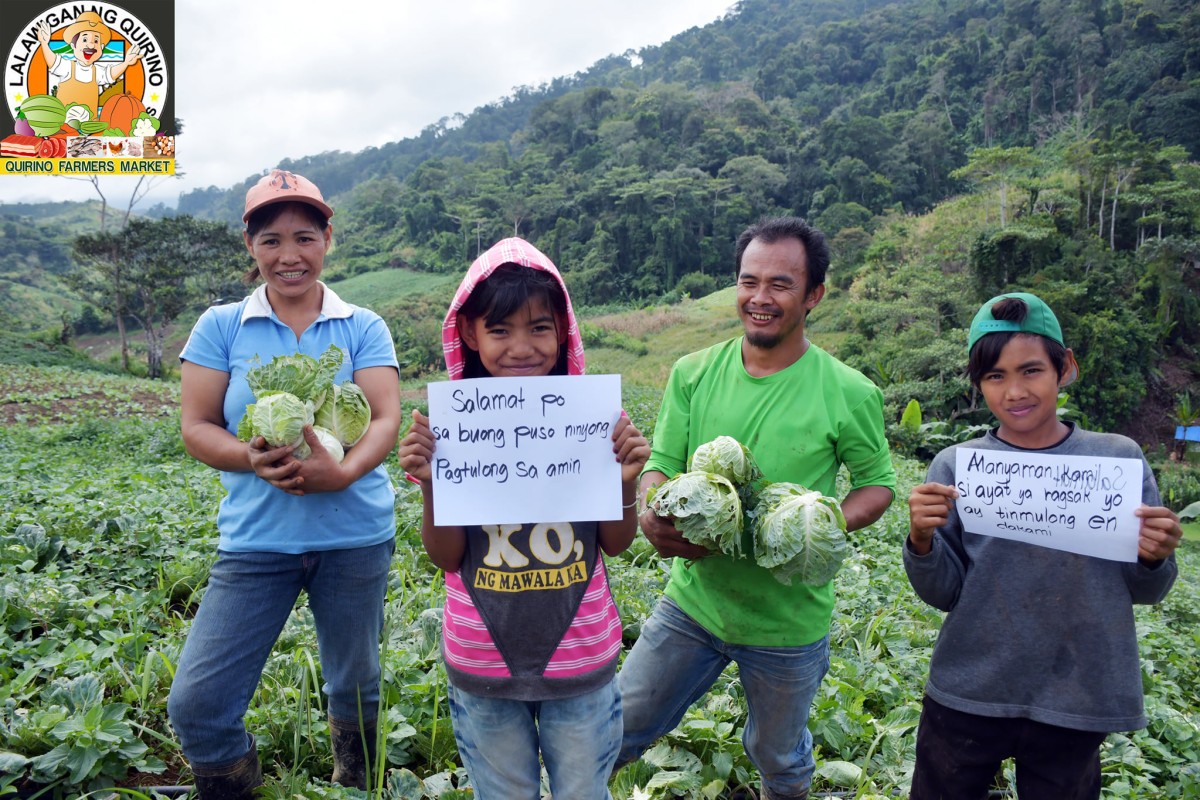At the height of the onslaught of the Covid-19 pandemic in 2020, netizens were horrified to see pictures of tons of tomatoes dumped on the roadside of Quirino province due to excessive supply and low market prices.
A dejected Quirino Gov. Dakila Carlo Cua called the ghastly sight as the “libingan ng mga pangarap ng mga magsasaka” or graveyard of farmers’ hopes.
“The difficulty in marketing the produce of our farmers can be attributed partly to the COVID-19 pandemic, but as a public servant, I felt some guilt that we, in government, are not giving enough assistance and support to our farmers,” the governor lamented.
To address the problem, Cua immediately formed a team from the Office of the Governor, the Provincial Agriculturist, and other LGU units in charge of economic enterprise, tourism, nutrition, engineering, trade and industry, science and technology, as well as the representative of the National Irrigation Administration to look into the problems of the farmers.
The team devised interventions such as developing a direct distribution channel for the farmers’ produce from the farm directly to the consumers, and the scheme worked.

It was during this period when the Quirino Farmers Market was established at the provincial capitol grounds wherein provincial and national government agencies joined forces to assist the farmers in bringing their produce to the market and at the same time providing them with links to institutional buyers.

Fully aware that this is not the only problem that the farmers are facing, the governor said the government must give them a fighting chance to achieve their dreams by providing a holistic program that includes the following: low-interest loans, eliminating the middlemen, and increasing the revenue of farmers.
He also said market matching and market study are needed to avoid overproduction including the construction of irrigation facilities, improvement of farm-to-market roads, designating agricultural technicians to teach the farmers, organizing and training farmers, and establishment of storage and processing facilities near the farms.
The Q-LIFE or Quirino Livelihood for Everyone program of the provincial government offers livelihood loans with minimal interest to farmers, fisherfolk, hog raisers, and ambulant vendors where borrowers can pay their loans by selling their produce to the Q-LIFE processing center.
The provincial government through its I Love Quirino Caravan project is continuously improving farm-to-market roads to help farmers reduce transportation costs, prevent damages and losses, and gain better prices for their produce.
Last year, the NIA turned over a P45 million worth of irrigation project to the Mataddi Irrigator’s Association in Mataddi, Nagtipunan which is now benefiting high-value crops farmers in the area which is known as one of the top producers of vegetables in the province.
Also, soon to be constructed is a big-ticket irrigation project, the Lusod Integration National Irrigation Project at Barangay Dipantan, Maddela with a service area of 1,046 hectares and will benefit 685 farmers from barangays Dipintin, Diduyon, Buenavista, Lusod, Villa Hermosa Norte, Villa Hermosa Sur, Poblacion Norte and Poblacion Sur of Maddela.
Cua said this project is one of the steps towards a more progressive life for the farmers.

“In our experience, teamwork and a well-coordinated effort by the LGUs and the different national government agencies are the best way to achieve success. We can overcome adversity by helping our farmers reach their dreams through concerted efforts of the local and national governments,” Cua said.

The latest breakthrough of the provincial government in addressing issues of wastage due to overproduction is the opening of the state-of-the-art Q-LiFE Processing Center, one of the components of the Quirino Integrated Rural Development Project, a partnership between the Philippine government and South Korea, through the Korea International Cooperation Agency (KOICA), to ensure the complete value chain formation of agricultural products in the province.
Through the processing center, Quirino farmers no longer worry about low prices due to the excess production of crops every year.
Q-LIFE Processing Center Manager Leonardo G. Biagan shared that this cropping season, through the Provincial Agriculture Office, they were able to purchase hundreds of kilograms of tomatoes, wombok or Chinese cabbage, and native ginger from Western Nagtipunan and other parts of the province for the production of tomato jam, kimchi, and ginger tea.
The processing center also produces Guyamansi Juice, Ginmeric Tea, Turmeric Tea, Butter cookies, Choco Cookies, Streusel, Butter Roll, Pullman bread, Classic loaf bread, Monggo Loaf, Ube Loaf, Nutribun, squash, Regensburg Sausage, Frankfurter Sausage, Bierschiken Ham, Jadgwurst Ham and Beef Jerky.
“Our processed food products have a very high acceptance in the market so we have to increase our production to meet the demands of our buyers,” Biagan said as he assured that they will continuously seek innovations for their products.
Biagan further said they are currently working on the Food and Drugs Administration registration of their processed food products, leveling up of the packaging, and the Intellectual property ownership to penetrate the formal market.
The manager said that they are being assisted by the neighboring provinces and cities in marketing their products as of today. He also expressed gratitude to Representative Midy Cua, Governor Dax Cua, and PCSO chairperson Junie Cua, the biggest sellers and promoters of their products. (OTB/TCB/PIA-2, QUIRINO)



